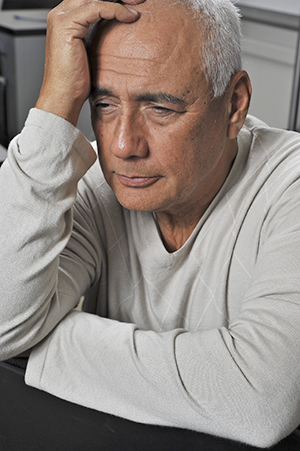Mood Swings and Depression After a Stroke
After a stroke, a person may feel sudden or extreme emotions. Sadness and depression are common. These feelings may be due to damage in the brain. Or they may be a response to the person’s awareness of what has happened.

Coping with mood swings
One common effect of stroke is lability. This problem makes people less able to control their emotions. Lability may cause a sudden mood shift that is out of context with what is going on. A person may suddenly cry or laugh.
You can help
-
Stay calm. Accept the behavior and go on with what you were doing.
-
If the person apologizes, acknowledge the behavior as a result of the stroke.
-
Don't criticize.
-
Treat the person with respect at all times.
Dealing with depression
A person may feel depressed after having a stroke. This may be due to brain damage. Changes in body image and grieving for lost skills, such as speech or freedom of movement, may also cause depression.
You can help
-
Ask the health care provider whether medicine can help reduce the depression. You may need to take your loved one to see a psychiatrist or psychologist if they have severe depression.
-
Help the person stay active. Play games, watch TV, take a walk, or listen to music together.
-
Ask friends to visit if the person is willing to see them.
-
Don't discount depression by telling the person to “cheer up.”
© 2000-2025 The StayWell Company, LLC. All rights reserved. This information is not intended as a substitute for professional medical care. Always follow your healthcare professional's instructions.